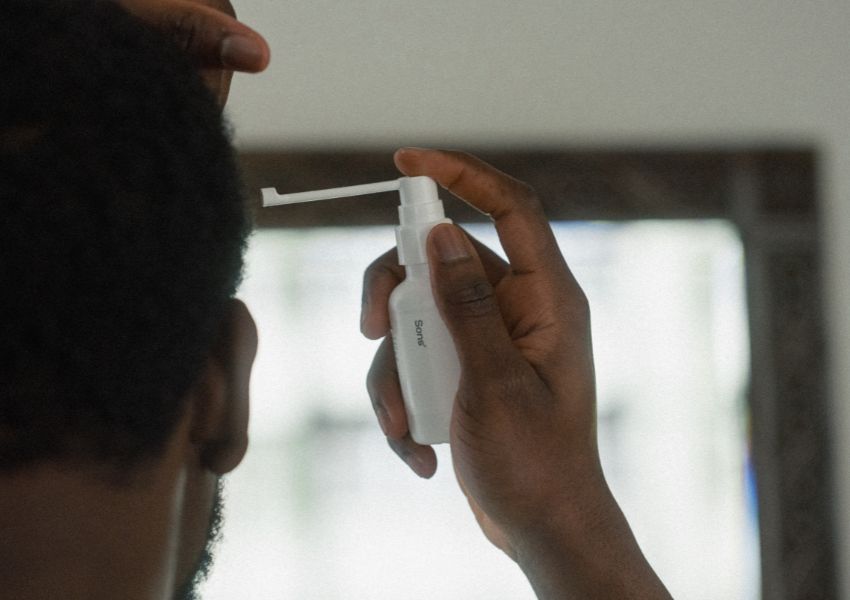Receiving prescribed treatment for hair loss is a brilliant way for men to combat the signs of thinning or loss, encouraging their hair follicles to produce thicker strands. However, a few options are open to men, leading to confusion before you have your consultation.
That's why we want to explain the difference between oral and topical Minoxidil so you can judge which is the best choice to help you start fighting hair loss.
What is Topical Minoxidil?
The primary method of using Minoxidil is in its topical form. Topical Minoxidil is a serum pumped from a bottle twice daily and applied directly to the areas of your scalp that are thinning or losing hair. Similarly to Oral Minoxidil, the aim is to revitalise the scalp and boost the blood flow and oxygen levels to the scalp.
Many people are prescribed topical Minoxidil because, in its usual form, there is less likely to be reactions with topical medications. Side effects when taking Minoxidil are unlikely, yet they can happen when you apply topical Minoxidil, too, particularly if you have sensitive skin. However, oral medications tend to produce more side effects than topical treatments, which is one reason topical Minoxidil is seen as the first line of treatment.
What is Oral Minoxidil?
Reversing the miniaturisation of your hair follicles is achieved by dilating the blood vessels on your scalp so more nutrients can be absorbed and thicker hair can grow. Some of the enzymes Minoxidil targets are possessed in the liver, not always the scalp, so swallowing this oral Minoxidil capsule is designed to reach those areas, too.
Therefore, if you don't possess the sulfotransferase enzymes on your scalp, you must find an alternate way of attacking them in your system, which is precisely what oral Minoxidil does.
Can You Take Topical and Oral Minoxidil Simultaneously?
We wouldn't advise that you take both oral and topical Minoxidil together; when you take one form of this medication, you're receiving the optimal amount designed to slow and stop hair loss, so essentially doubling the amount you're consuming is less likely to give you the results you want. Instead, it can increase the chances of experiencing side effects such as headaches, rashes, swelling, and dizziness, among other things.
Is Topical or Oral Minoxidil Better?
Prescribers will almost always suggest that you take topical Minoxidil first to see if this works; if it doesn't, oral Minoxidil might be the better approach. However, this doesn't mean one is better, as both can effectively address hair loss and promote hair regrowth. Although, if topical Minoxidil isn't working for you, but oral Minoxidil does, it's reasonable to assume that oral Minoxidil is the best route for you - it's all about what works for you.
All of our blog articles are reviewed by our Medical Director before publication.







